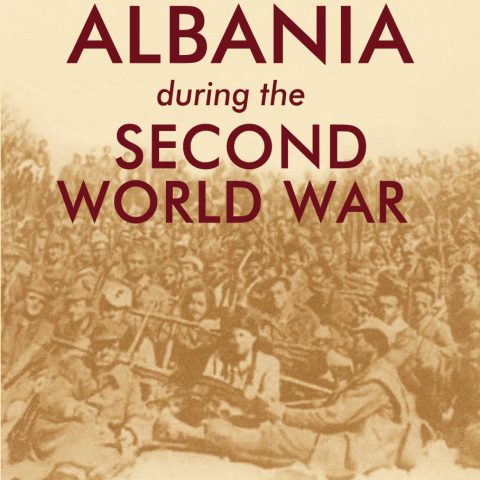By Sidonja Manushi
“Professionalization, prestige, the market, the publishing house, the critics…all these things could kill, metaphorically, a writer. You have to keep fighting that, and write!” Rosa Montero, Spanish award-winning writer and journalist, said at the end of our conversation, as a way of motivating the young and aspiring writer interviewing her.
A feeling of excitement could be sensed in the auditorium where Montero was to address and converse with students of Tirana’s Spanish language faculty in the context of a conference hosted by the embassy.
Despite it being the 8th of December, a national holiday in Albania, the auditorium was packed with students, faculty and media. While even the Spanish ambassador to Tirana, Vincente Montero, was present at the cultural event, it was the students preparing and practicing questions, self-conscious they’d speak to a personality one probably doesn’t get to meet more than once in their lives, that was most interesting to see.
Automatically, the pride a beginner journalist like me felt for getting to interview a professional turned to something else – doubt that I would ever manage to sit and ask questions, without stuttering, to the woman who has interviewed, in her long career of more than 2,000 interviews, people like Indira Gandhi, Richard Nixon and Jaser Arafat.
And yet, as I also reconfirmed later while sitting with her in a corner of the auditorium, talking of literature, journalism and art, Rosa Montero’s energy, activism and positive vibe make it impossible for anxiety and doubt to dominate the environment she’s in. Now in her late sixties, Montero entered the room looking ageless, dressed in leathered tights and a red sweatshirt that matched her short, unruly hair all too well. Her laugh was dynamic, it filled the room and, soon enough, I was captivated by the conversation that was developing between her and the students, despite not speaking a word of Spanish.
She answered all kinds of questions, as my helpful language app informed me, from her journalistic opinion on the possible similarities between Catalonia and Kosovo (she thinks there is no point of comparison), to her favorite authors and books as a writer. This made me curious to later ask her whether it happens to sometimes combine the two types of writing for an end result.
“No, you shouldn’t,” she told me with a smile, as if she’d been asked this question before and the answer was on the tip of her tongue. “To be a journalist in a newspaper is actually a literary genre, it’s like poetry or essay writing. Usually, it’s rare for a writer to write only one genre and the biggest part of writers were also journalists – Hemingway, Marquez, Eliot, Kipling…you should know the limits between the genres to do them both. If you use literature for journalism, it wouldn’t be good journalism, because you wouldn’t be sure of the reality of it. And if you do a novel mixed with journalism it won’t be a good novel, because it would be superficial. So, they are ultimately two very different ways of approaching reality”
She added: “On journalism, clarity is a value. The clearer, the more factual it is, the better it is. In a novel, the ambiguity is the value. The more interpretations the novel has, even if they are contradictory, the best. It is deeper, it is more complex, more profound and it reflects life in a better way, because life is always contradictory and ambiguous.”
No wonder that, while we were on this topic, she also confessed her preferred genre to be fiction, as it best helps her to cope with reality. Even though Montero still works for one of the most prestigious newspapers in Spain, El Pais, she explained that journalism is just a part of her life, as opposed to “that other thing” , the demanding process of creation, which is her life.
The devotion expressed while she talked about writing fiction and the simultaneous clarity and complexity of her ideas made me curious about her creative process, whether she was an author that wrote from within, or with an audience in mind. Though the passionate way she described writing as ‘her life’ already gave me an idea of the answer, I anticipated the way she would put it into words.
“It starts with a small idea for a novel, an idea that is an image that appears in your head, without knowing where, and you have a lot of these ideas all the time, and some of them disappear…but, one of these ideas is so touching for you even you don’t know why. So touching that it’s too big to be in your heart or in your mind, and then you say ‘I have to share this, I have to tell this to someone’. So you write as a need for communication in the first place.”
Then she continued: “but on the other hand, when you write, it is so intimate because you don’t think about the readers; you just write the novel that you would like to read. And because all we writers are readers, we love to read, you try to write the novel you would like to read – you write to your inner reader.”
Montero’s most influential work, in terms of cause and effect, has been accomplished in the field of journalism. When I asked her about the influence her work has had, however, she only affirmed five or six “small things” to have changed from her reporting, such as prison tortures during the time of transition, or some negative elements of society that she denounced. Humble of her praised journalistic work, she was much more interested in talking about the principle of changing society and the ways journalism and literature differ in achieving that.
“In journalism and in essays, you can fight for your ideas. In novels, you shouldn’t, because you don’t write novels to teach anything, you write novels to learn. The sense of writing is looking for the sense of life. It’s a way of knowledge, writing novels, and you can’t gain that knowledge by giving answers already, so you cannot use novels to fight for your ideas. You just try to shed a bit of light in the darkness of humanity and the darkness of your heart.”
Majorly inspired about the direction our conversation was taking us and the way she was speaking of literature combined with life, society and change made me ask her about Albania, a society she is only familiar with through another great author – Ismail Kadare, who happens to be one of her favorites. Feelings like a school pupil, I told Montero of the primary role politics have in Albanian society as opposed to art, especially art generated by young people. Montero, having begun writing at a very early age and having already told me that, in her understanding, fiction could help one cope with the ambiguity of life, while journalism could be used to fight for one’s ideas, felt like the right person to ask about the dangers of a society without young artists.
“A society, a culture, without young artists in all the fields, without young writers, without young poets is a society in danger of dying, absolutely. Because this is the heart of the society – it is absolutely the heart. Fernando Pessoa, who was a wonderful Portuguese writer, has a sentence that said: ‘Literature is the proof that life is not enough’. And it’s true, life is not enough, we need literature to have a real life. And if a society has no new artists that means something very difficult and very dangerous is going on with this society.”
The moment this vein was hit and much more was to be said about the tragedy of a society without artists, a glance at my watch reminded me that Montero was on a tight schedule, having other appointments to attend. Feeling as if it was the end of a conversation, rather than an interview, I didn’t hesitate to ask her what her two favorite books are, pleasantly understanding that I was no longer nervous or anxious and that some of her professionalism had been transmitted to me during our brief talk.
She told me that Nabokov’s Lolita was the book that appealed to her realistic side, while Ursula K. Le Guin is the suburb author that fulfills her fantastical preferences in literature. As she hugged me and wished me luck with the warmth only a person who understands people can possess, I thought about what she’d meant earlier during the conference when she said that “will, perseverance and standing one’s ground” was what helped her survive during her career as a journalist and felt happy, above all, that she was there to tell the story.










